

Deciding Between ‘Traveler’ and ‘Traveller”
When it comes to spelling, there are a few words that can cause confusion between American and British English. One of those words is traveler/traveller. While both spellings are technically correct, there are differences in usage depending on where you are located.
In the United States, the spelling “traveler” is more commonly used. This spelling can be found in most American dictionaries and is the preferred spelling for most American publications. If you are writing for an American audience, it is generally recommended that you use the spelling “traveler.”
On the other hand, in the United Kingdom and other countries that use British English, the spelling “traveller” is more commonly used. This spelling can be found in most British dictionaries and is the preferred spelling for most British publications. If you are writing for a British audience, it is generally recommended that you use the spelling “traveller.”
It is important to note that both spellings are technically correct, and there is no right or wrong choice when it comes to using one or the other. However, it is important to be consistent in your spelling throughout your writing.
In addition to the spelling of the word itself, there are also differences in the spelling of relaed words such as “travelled” and “traveling.” In the United States, the spelling “traveled” with only one “L” is more commonly used. In the United Kingdom, the spelling “travelled” with two “L’s” is more commonly used. The same goes for the spelling of “traveling” vs. “travelling.”
When it comes down to it, the spelling of “traveler” vs. “traveller” is simply a matter of regional preference. As long as you are consistent in your spelling throughout your writing, you can use whichever spelling you prefer. Just remember to always keep your audience in mind and choose the spelling that is most appropriate for them.
Does Traveller Have One L Or Two?
Traveller can be spelled with one L or two depending on the regional variations of English. In American English, it is spelled with one L, while in British English, it is spelled with two Ls. It is important to keep in mind the intended audience and the purpose of the text while choosing the appropriate spelling. It is crucial to pay attention to spelling and grammar to ensure that the content is easily understood by the target audience.
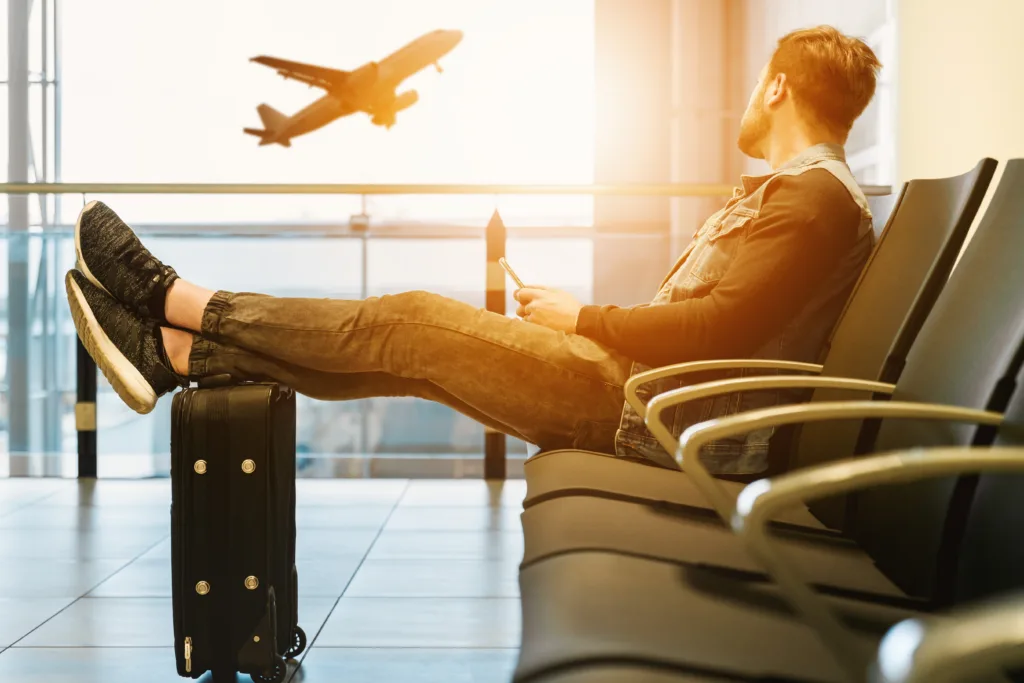
What Are The Two Types Of Travellers?
There are two types of travelers: the first kind is those who embark on a trip with a preconceived image or idea in their minds. They have a specific goal or objective that they wish to achieve during their travels. These travelers are often focused on realizing their expectations and may plan their itinerary accordingly.
The second type of traveler is those who travel with an open mind and a desire to explore the unknown. They are not bound by any preconceived notions or expectations and are open to new experiences. These travelers are often more spontaneous and flexible in their travel plans, allowing themelves to be guided by their curiosity and the opportunities that arise during their travels.
The two types of travelers are those who travel with a specific goal in mind and those who travel with an open mind and a desire to explore the unknown.
How Do You Spell Traveler In Canada?
In Canada, the spelling of the word traveler is the same as in the United States, with only one “l”. Therefore, the correct spelling of traveler in Canada is the same as in the US, without the second “l” which is often used in British or Commonwealth English.
What Do You Call A Traveler Person?
A person who travels from place to place can be referred to as a traveler. Other synonyms for a traveler include voyager, tourist, passenger, or journeyer. A traveler is someone who moves from one location to another, often for leisure or business purposes. They may use various modes of transportation, such as planes, trains, or automobiles, to reach their destination. In some cases, a traveler may choose to live in a van or other vehicle and travel continuously, rather than living in one place.
The spelling of traveler/traveller is a classic exmple of the differences between American English and British English. American English uses one “L” while British English uses two “Ls”. It is important to keep in mind that both spellings are correct and widely used in their respective regions. It is essential to be mindful of these spelling variations, particularly when targeting audiences from different regions. Using the correct spelling can help ensure that your content appears professional, credible, and relevant to your target audience. So, whether you are a traveler or a traveller, it is always important to be aware of the spelling conventions in the country you are visiting or writing for.
William Armstrong
“Travelers” or “Travellers”
Travelers and travellers are both English terms.
Travelers is predominantly used in 🇺🇸 American (US) English ( en-US ) while travellers is predominantly used in 🇬🇧 British English (used in UK/AU/NZ) ( en-GB ).
In terms of actual appearance and usage , here's a breakdown by country, with usage level out of 100 (if available) 👇:
- In the United States , there is a preference for " travelers " over "travellers" (93 to 7).
- In the United Kingdom , there is a 78 to 22 preference for " travellers " over "travelers".
- In India , there is a 72 to 28 preference for " travellers " over "travelers".
- In the Philippines , there is a preference for " travelers " over "travellers" (55 to 45).
- In Canada , there is no clear preference between "travelers" and "travellers", with usage levels of 50 vs. 50.
- In Australia , there is a 76 to 24 preference for " travellers " over "travelers".
- In Liberia , there is not enough data to determine a preference between "travelers" and "travellers".
- In Ireland , there is a 79 to 21 preference for " travellers " over "travelers".
- In New Zealand , there is a 72 to 28 preference for " travellers " over "travelers".
- In Jamaica , there is a 66 to 34 preference for " travellers " over "travelers".
- In Trinidad & Tobago , there is a preference for " travelers " over "travellers" (52 to 48).
- In Guyana , there is not enough data to determine a preference between "travelers" and "travellers".
Below, we provide some examples of when to use travelers or travellers with sample sentences.
📈 See Trends
Looking for a tool that handles this for you wherever you write?
Examples of “travellers”
- … the visually impaired enable all travellers to reach the trains without
- … only small shelters for mainline travellers ) and the goods shed an …
- … Stories Under the Sun: 2: Travellers ' Tales, (with David Myers), Central …
- … the reports of merchants and travellers , including Muhammad ibn Yusuf al-Warraq …
- … Ifan was studied by early travellers and antiquarians, and rapidly became …
- … only as a hostel for travellers but also as an important …
- Dauphin Kings defeated Brandon Travellers 4-games-to-2
- … is likely that more overland travellers take this river route than …
- Services for travellers
- Marty Ehrlich: Traveller's Tale
(Examples are Wikipedia snippets under the CC ShareAlike 3.0 license.)
Too Much to Remember?

Traveler vs. Traveller — Which is Correct Spelling?
Table of Contents
Which is correct: traveler or traveller.

Key Differences
How do you spell traveller correctly, traveler definitions, traveler meaning in a sentence, traveler idioms & phrases, traveler's check, traveler's tale, common curiosities, which vowel is used before traveler, what is the root word of traveler, what is the plural form of traveler, which conjunction is used with traveler, why is it called traveler, what is the pronunciation of traveler, which article is used with traveler, what is the verb form of traveler, which preposition is used with traveler, is traveler a noun or adjective, is traveler a collective noun, what is the singular form of traveler, what is the opposite of traveler, is the word traveler a gerund, is the word “traveler” a direct object or an indirect object, how many syllables are in traveler, how do we divide traveler into syllables, what part of speech is traveler, which determiner is used with traveler, is traveler an abstract noun, is traveler a vowel or consonant, is traveler a countable noun, is traveler an adverb, is traveler a negative or positive word, is the traveler term a metaphor, is the word traveler imperative, what is the stressed syllable in traveler, what is another term for traveler, how is traveler used in a sentence, share your discovery.

Author Spotlight
Popular Spellings

Featured Misspellings

Trending Misspellings

New Misspellings

Protecting your tomorrow, today.
Travelers vs. Travellers: The Great Spelling Debate Explained
Travelers vs. Travellers – Are you a travel enthusiast who’s always confused about how to spell the word “traveler”? Do you find yourself constantly switching between “traveler” and “traveller”? Well, you’re not alone! The great spelling debate of “traveler” versus “traveller” has been ongoing for decades, and it seems like there’s no clear winner. While both spellings are technically correct, there are some subtle differences in their usage and meaning. As a copywriter and digital marketer, I have come across this spelling conundrum numerous times, and I understand the importance of getting it right. In this article, I will explain the origins of the two spellings, their differences in usage and meaning, and provide some tips on how to choose the right spelling for your content. So, whether you’re a seasoned travel writer or just starting out, read on to unravel the mystery of the great spelling debate of “traveler” versus “traveller.” Are you looking for Travelers Insurance company? Get a Travelers Insurance quote here?
Travelers or Travellers – The History Behind the Two Spellings
The word “traveler” has been used in the English language since the 14th century. It comes from the Old French word “travaillour,” which means “one who works hard.” The word “traveller,” on the other hand, is a more recent addition to the English language and was first recorded in the 1590s. It comes from the Middle English word “travaillen,” which means “to toil or labor.”
Travelers vs. Travellers – the two spellings have coexisted in the English language for centuries, with each spelling being used interchangeably in different regions of the world. However, the spelling “traveller” is more commonly used in British English, while “traveler” is more commonly used in American English.
Regional Preferences – Where Each Spelling is More Commonly Used
As mentioned earlier, “traveler” and “traveller” are used interchangeably in many regions of the world. However, there are some regions where one spelling is more commonly used than the other.
In American English, “traveler” is the preferred spelling. This is the case in Canada as well. In Australia and New Zealand, “traveller” is the preferred spelling. In the United Kingdom and other parts of the Commonwealth, “traveller” is the more commonly used spelling.
It’s worth noting that even within these regions, there can be variations in spelling depending on the context. For example, in British English, “traveler” is used when referring to modes of transportation, such as “train traveler” or “air traveler.” Click here for the dictionary.
American English vs. British English – How They Differ in Spelling
The differences between American and British English spellings are well-documented, and the spelling of “travelers” vs. “travellers” is no exception. As mentioned earlier, “traveler” is the preferred spelling in American English, while “traveller” is the preferred spelling in British English.
In addition to travelers vs. travellers, there are many other words that are spelled differently in American and British English. For example, “color” is spelled “colour” in British English, and “center” is spelled “centre.” These differences in spelling can sometimes cause confusion, especially when writing for an international audience.
The Impact of Technology on Spelling
The rise of technology and the internet has had a significant impact on the way we spell words. With the advent of spell-checkers and autocorrect, it’s easier than ever to ensure that your spelling is correct.
However, these tools are not foolproof and can sometimes lead to errors. For example, if you’re using a spell-checker that is set to American English, it may automatically change “traveller” to “traveler” without you even realizing it.
It’s always important to double-check your spelling, especially when writing for an international audience. You don’t want to inadvertently use the wrong spelling and alienate your readers.
Travelers or Travellers – Which Spelling Should You Use?
So, which spelling should you use? The answer depends on your audience. If you’re writing for an American audience, “traveler” is the preferred spelling. If you’re writing for a British audience, “traveller” is the preferred spelling.
If you’re writing for an international audience, it’s best to choose one spelling and stick with it throughout your content. This will help to avoid confusion and ensure that your content is consistent.
How to Handle the Spelling When Writing for an International Audience
When writing for an international audience, it’s essential to be mindful of the spelling differences between American and British English. Here are some tips to help you handle the spelling when writing for an international audience:
— Select one spelling and stick with it throughout your content.
— If you’re unsure which spelling to use, do some research on your target audience to determine which spelling is more commonly used.
— If you’re using a spell-checker, make sure it’s set to the correct language.
— Double-check your spelling before publishing your content.
Other Spelling Debates in English Language
The spelling of “traveler” versus “traveller” is just one example of the many spelling debates in the English language. Here are some other examples:
— “Program” versus “programme”
— “Theater” versus “theatre”
— “Color” versus “colour”
— “Center” versus “centre”
These spelling differences can be confusing, but it’s important to remember that both spellings are technically correct. The key is to choose one spelling and stick with it throughout your content.
Travelers or Travellers Fun Facts and Trivia
— The word “traveler” is the preferred spelling in the United States, but it’s also used in British English when referring to modes of transportation, such as “train traveler” or “air traveler.”
— The word “traveller” is the preferred spelling in the United Kingdom and other parts of the Commonwealth, but it’s also used in American English, especially in formal writing.
— The spelling of “traveler” versus “traveller” is just one example of the many spelling differences between American and British English.
— The rise of technology and the internet has made it easier than ever to ensure that your spelling is correct, but it’s significant to double-check your spelling, especially when writing for an international audience.
Conclusion – The Verdict on Which Spelling to Use
So, which spelling should you use – “traveler” or “traveller”? The answer depends on your audience. If you’re writing for an American audience, “traveler” is the preferred spelling. If you’re writing for a British audience, “traveller” is the preferred spelling.
Ultimately, both spellings are technically correct, and it’s up to you to select which one to use. The key is to be consistent and to double-check your spelling before publishing your content. By following these tips, you can navigate the great spelling debate of “traveler” versus “traveller” with confidence and ease. Click here for a Travelers Insurance review.

Traveling or Travelling? Which is Correct Spelling?! Learn Here…
By: Author Lillie Marshall
Posted on Published: January 25, 2020 - Last updated: January 11, 2023
Is it Traveled or Travelled ?
Traveler or traveller , traveling or travelling .
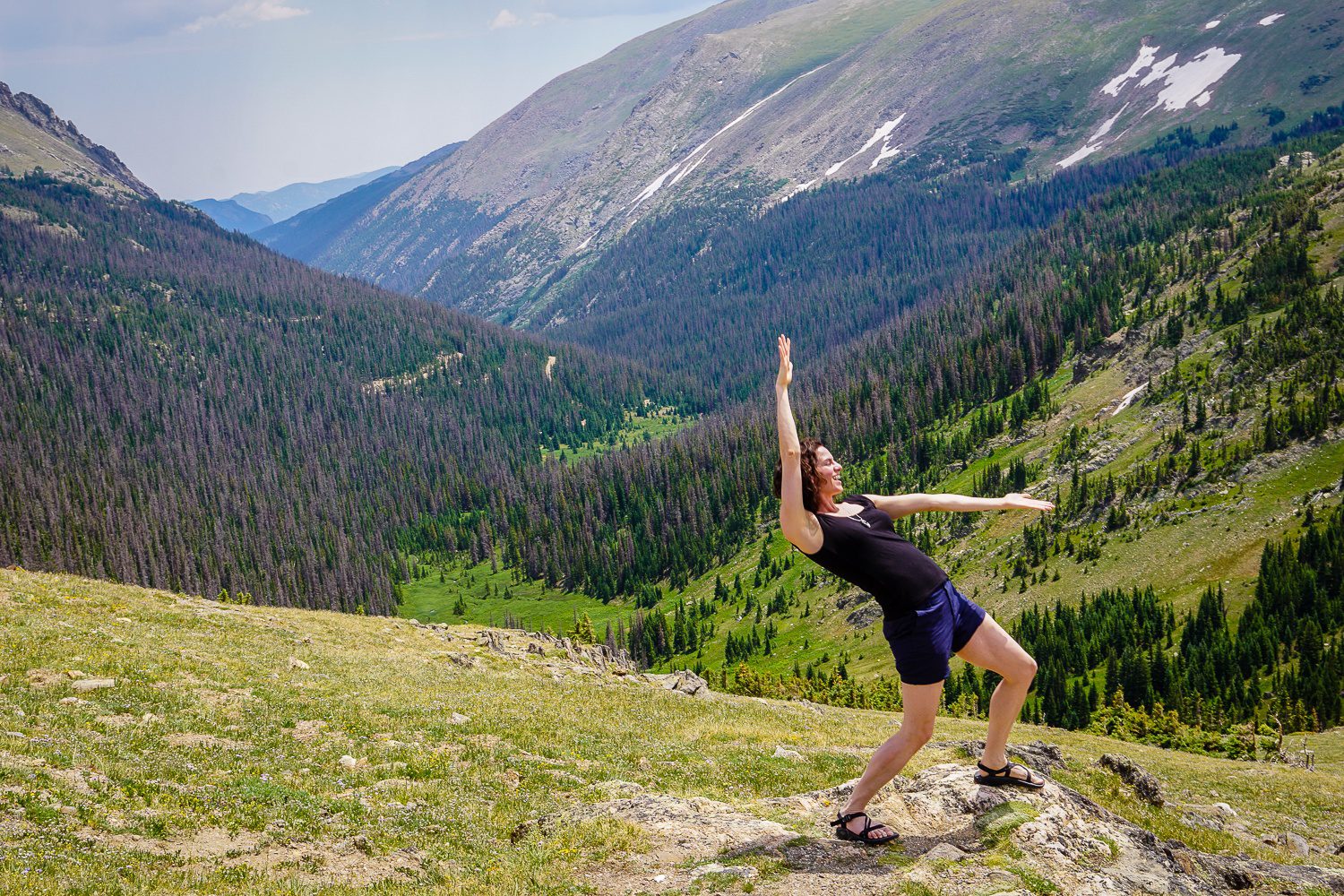
Answer: The spelling depends on WHERE you are in the world.
Now, the main purpose of this site is to share teacher travel grants and other global education opportunities, but I couldn’t resist creating this grammar article, because the “Traveling” spelling question comes up often, and causes kerfuffles.
I’ve been a full-time English teacher since 2003, so allow me to (ahem, pun coming) SPELL out the “Traveling or Travelling” rule for you in order to spread confidence and accuracy in the world.
Hey — it might even help in editing your applications for teacher fellowships , or assist in determining the correct way to structure a spelling lesson if you decide to teach English abroad !

Traveling vs. Travelling = U.S. vs. British Spelling
It’s all about geographical linguistics, my friends! The United States (and other countries that use American English spelling conventions) are in the “ one L ” boat for spelling.
In other words, if you’re in New York, or writing for a New York audience, what is correct is to write: “ Traveling ” because that’s the American spelling. If you’re in London, or writing for a London audience, tap: “ Travelling ” into your keyboard.
The same goes for all versions of Traveler/Traveller, and Traveled/Travelled: One “L” for countries that use American spelling, and two for places that embrace British English writing conventions. Simple !

Canada: Traveling or Travelling?
Wait… maybe it’s not THAT simple. What about Canada? That country is geographically close to the U.S. and thus should use just one “L,” right? Wrong .
Canada is one of the Commonwealth Countries: more than 50 nations that once were part of the British Empire. Hence, Canada uses the double – L rule, and if you’re in Quebec City , the correct spelling is: Travelling .
Other Commonwealth Countries that use the “two L” spelling (Travelled, Traveller, and so on) include Australia, South Africa, and New Zealand.
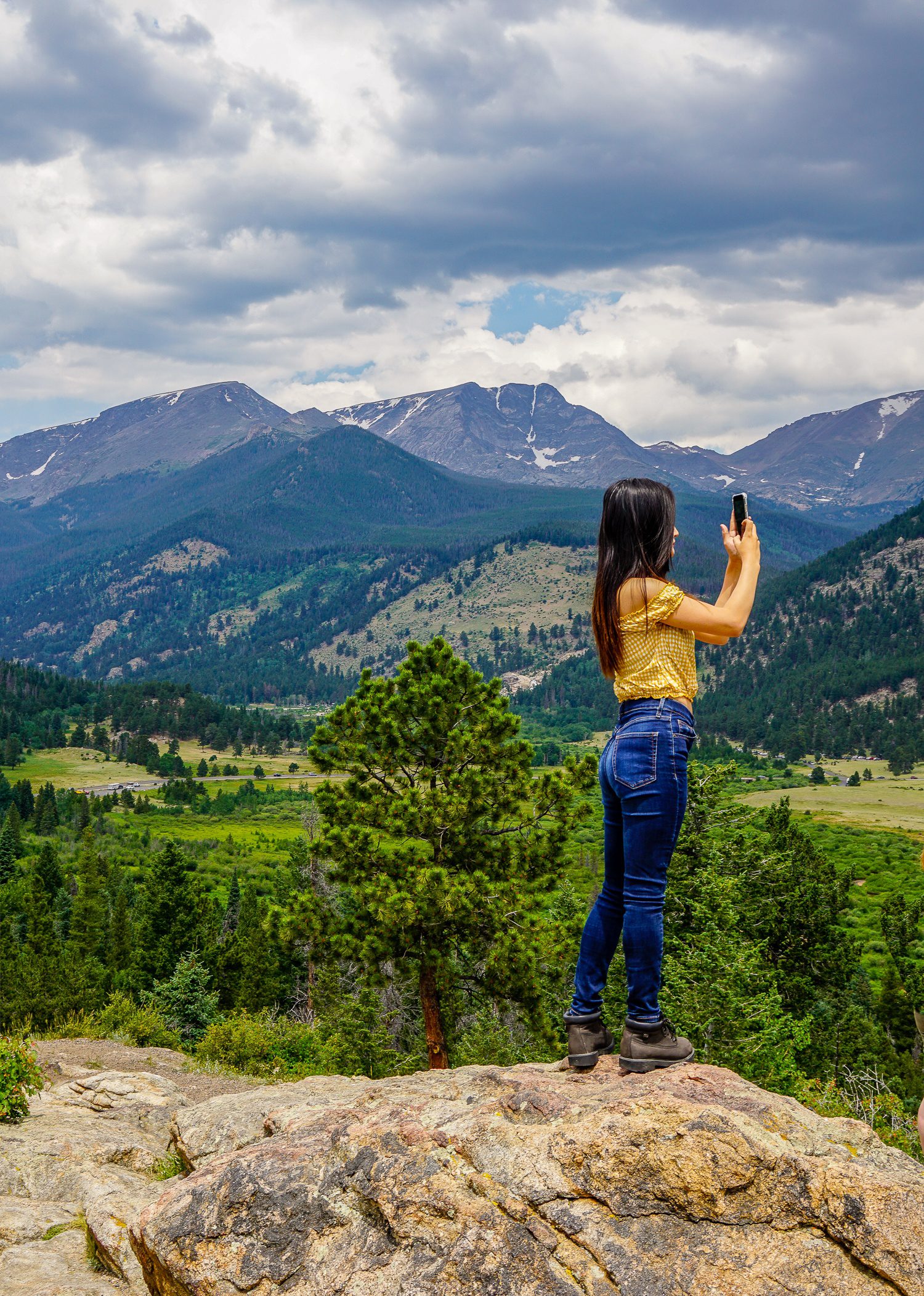
Is this Site Teaching Traveling or Travelling ?
The reason this site is called Teaching Traveling with ONE “L” is because I’m American , and my readership is predominantly American. (The one “L” thing is also a nice connection to the fact that my other site is called Around the World “L” !)
Alas, when things get tricky is when geographical worlds start to mix. This issue may pop up for you, too, so let’s address it directly.

What About a Mix of American and British Contexts?
Chances are you may find yourself in a situation where it’s unclear whether you should use the American or British version of our favorite “T” word. What then?
Here’s a frequent example I encounter on this site: If a British teacher types her answers to my interview questions using the double-L spelling, Travelling , do I go in and “ correct ” every instance of it to the single-L version ?
My American spell-checker sure thinks I should, and in fact is yelling at me to fix it at this very moment, its jaggedy red teeth bared!
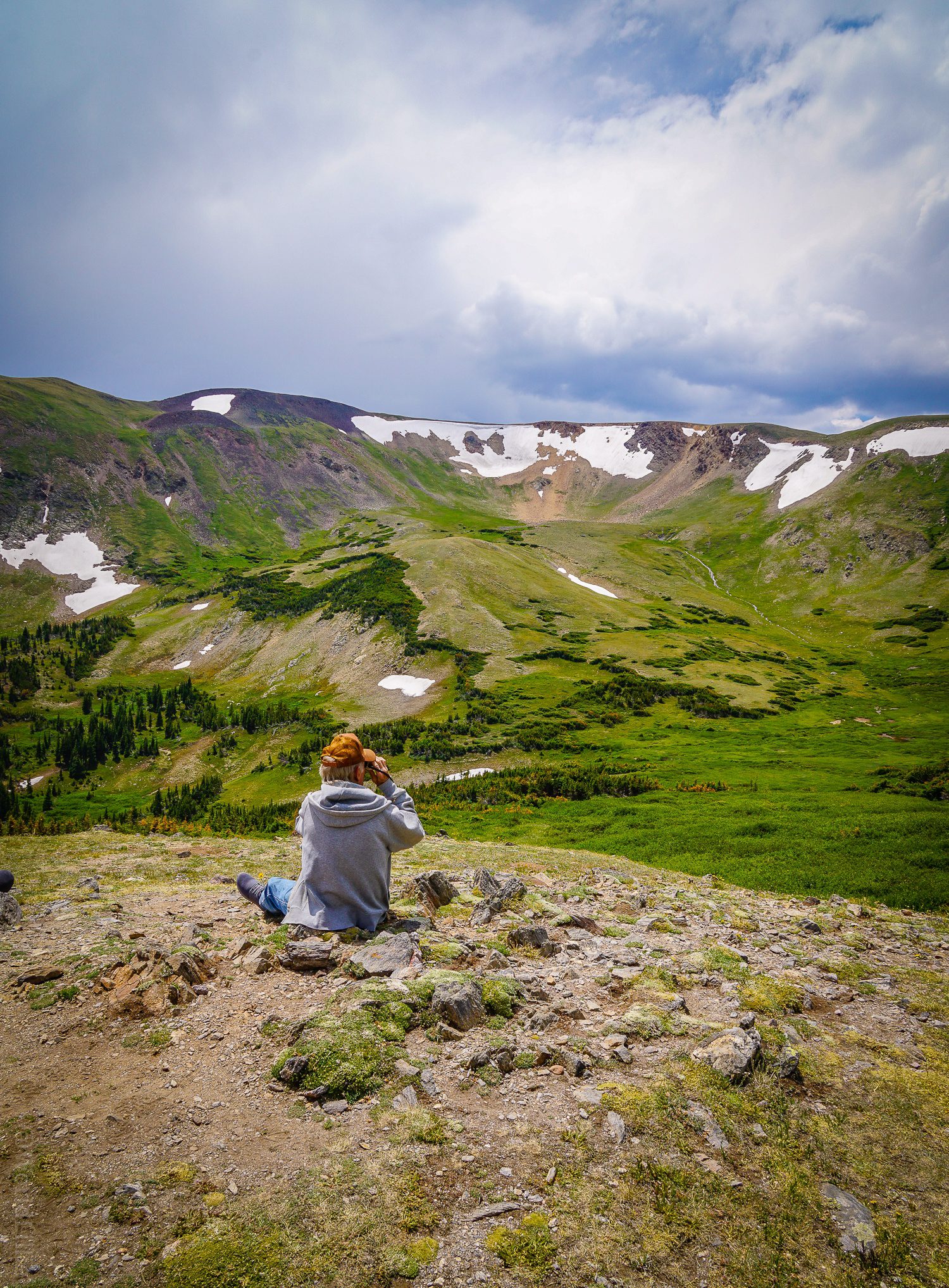
Should Travelling be Changed to Traveling ?
So what’s the answer to this two-context spelling dilemma? You have two choices, and either can be justified, depending on what your audience genuinely needs and wants.
Option #1 : Pick one spelling and stick to it throughout your body of work. In my case, if I chose this option, I would change all spelling on this site to the American one-L “Traveling.”
Sometimes I do this, clicking through all the U.S. spell-check suggestions to “fix” the British double L, because the article is one I know will mostly reach U.S. readers who might be confused by the unfamiliar spelling. Usually, however, I opt for the other option.
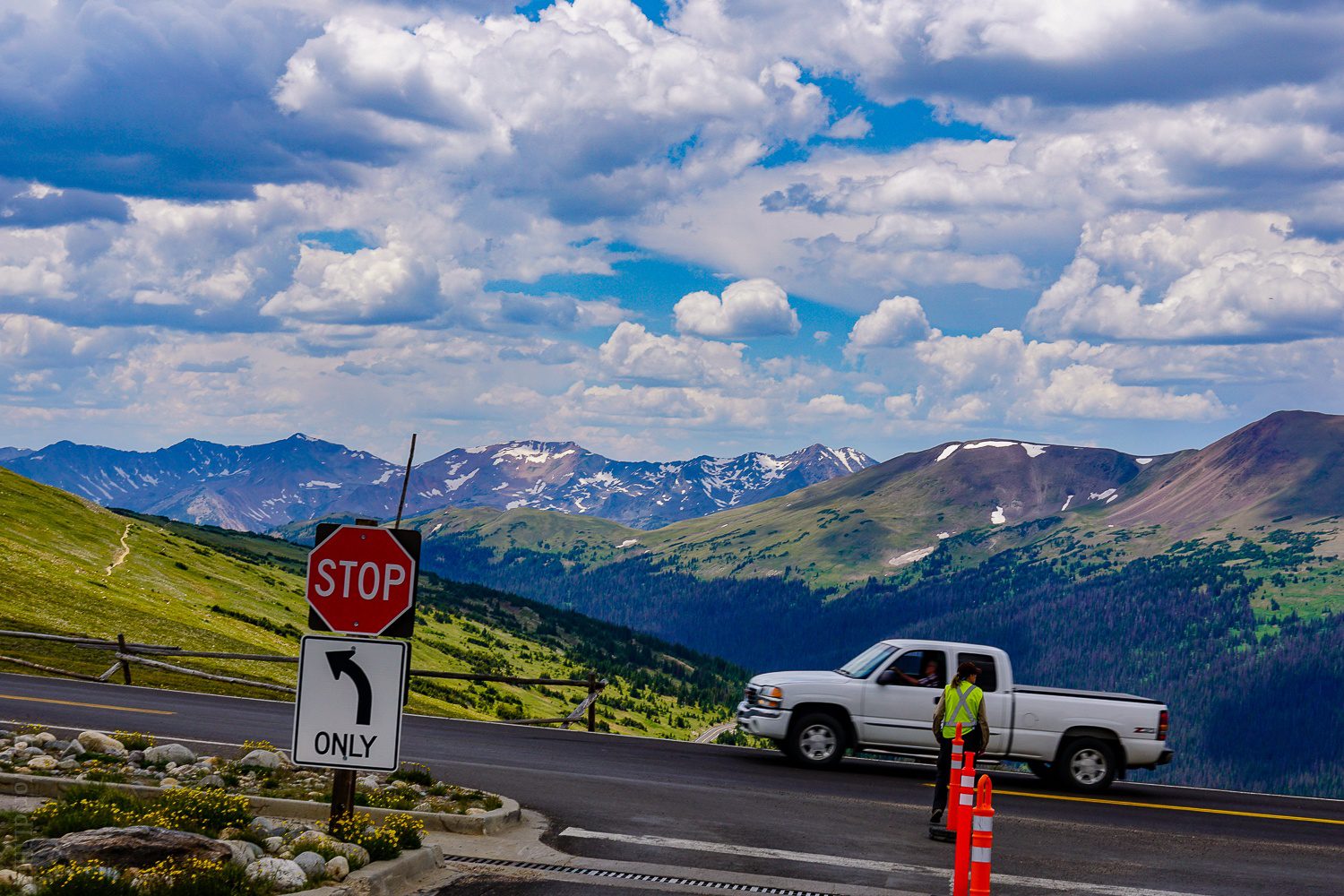
When to Keep “Travelling” Spelling
Option #2 : Change between “Travelling” and “Traveling” based on what the majority audience of the piece is expecting.
This option is what I chose to do for interviews with these teachers from Canada and Ghana , because I decided that readers would understand that the “Travelling” spelling was correct in the context of the British English country the speakers were from.
I also knew that the interviewees would also be sharing the articles with their friends, who in turn were used to the double-L spelling. In other words, it wouldn’t be correct for me to “correct” their British spelling in that situation.
Avoiding Traveling vs. Travelling
Bonus Option : Really stuck for whether to use Traveling or Travelling? If your piece is short enough, alter word choice so you don’t need to use either! For example, instead of saying, “I’m a traveller,” write, “I’m a person who loves to travel.” Kind of sneaky and sometimes silly, but if you’re really stuck, it’s an option.
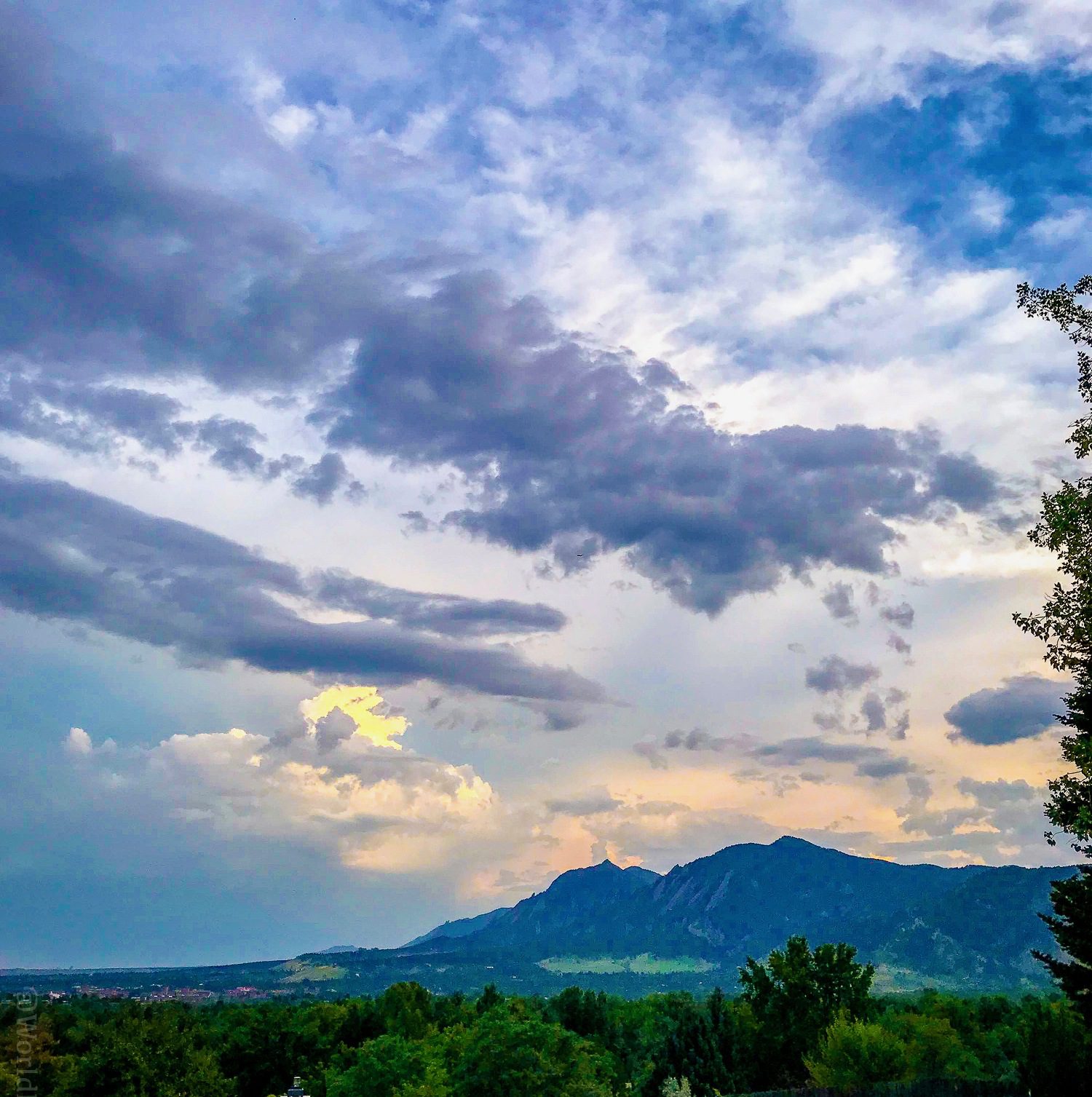
So, Traveling or Travelling?
In summary, it comes down to this: What does the specific audience of your written piece need and expect? Who you are and where you’re from becomes secondary to who they are and what they need.
That’s kind of deep , eh?
I hope you enjoyed this grammar lesson and found it useful. It’s the first one I’ve written (well, besides a tutorial on how to use the word “ Dushi “), and I must say that I found it so fun to write that I might just start putting down more of my 15 years of English teaching knowledge into articles…
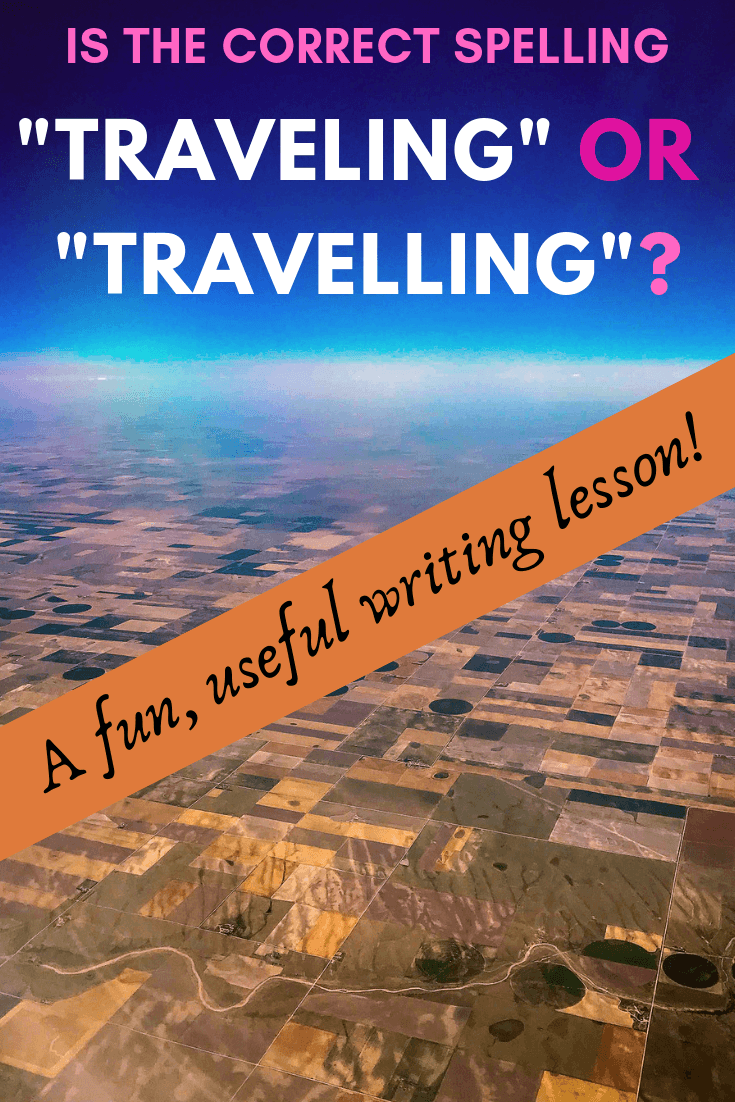
So what about you? What’s been your experience with the Traveling/Travelling divide? Did you know this rule before, and how did you learn it?
Are there other grammar, writing, or global education lessons you’d like to see on these pages? Do share!

The author, Lillie Marshall, is a 6-foot-tall National Board Certified Teacher of English from Boston who has been a public school educator since 2003. She launched TeachingTraveling.com in 2010 to share expert global education resources, and over 1.6 million readers have visited over the past decade. Lillie also runs AroundTheWorld L.com Travel and Life Blog, and DrawingsOf.com for educational art. Do stay in touch via subscribing to her monthly newsletter, and following @WorldLillie on social media!
Check this box to receive email notification of follow-up comments!
This site uses Akismet to reduce spam. Learn how your comment data is processed .
Monday 4th of January 2021
Thank you, Lillie! This was so helpful! I first learned English in Canada and often find myself "mixing up" American and British rules. It wasn't until recently that I learned that Canadian spelling is independent and consisting of both American and British rules! (normally including the "double L" rule and the "z" in words like specialize).
Lillie Marshall
So glad this helped! Very interesting that Canada uses a hybrid of British and American spellings, including the Z swap!
Tuesday 8th of September 2020
Lol I do have this issue in India is a Commonwealth country. Similarly, we have colour and color. Now I can say as long as you understand but when my kids were schooling I was after them for British spellings.
So interesting! Thank you for sharing!
Randy Franciose
Saturday 29th of August 2020
I misspelled this word on my wife's grave marker and only noticed my error yesterday, a year after she died. Does this imply she was an Anglophile or merely that her widower is a deficient speller?
Monday 11th of January 2021
@Lillie Marshall, Agreed!
Sunday 30th of August 2020
Never fear -- what you wrote was written with love and that's what matters!
Tuesday 28th of April 2020
When I was in Elementary School in the 1960's we were taught the double L rule. This was in the US.
Wednesday 11th of August 2021
@John, Same here. In Pennsylvania in the 1960's and 1970's, I was taught the double L rule, and still use it.
This is so interesting!!! Thank you for sharing this information. Do we think conventions changed over the years?
M Nazmul Huq Talukder
Tuesday 4th of February 2020
Yes, i faced problems while spelling this word.
Saturday 22nd of February 2020
Hope this helps!
Words and phrases
Personal account.
- Access or purchase personal subscriptions
- Get our newsletter
- Save searches
- Set display preferences
Institutional access
Sign in with library card
Sign in with username / password
Recommend to your librarian
Institutional account management
Sign in as administrator on Oxford Academic
traveller | traveler noun
- Hide all quotations
What does the noun traveller mean?
There are 18 meanings listed in OED's entry for the noun traveller , four of which are labelled obsolete. See ‘Meaning & use’ for definitions, usage, and quotation evidence.
traveller has developed meanings and uses in subjects including
How common is the noun traveller ?
How is the noun traveller pronounced, british english, u.s. english, where does the noun traveller come from.
Earliest known use
Middle English
The earliest known use of the noun traveller is in the Middle English period (1150—1500).
OED's earliest evidence for traveller is from before 1387, in a translation by John Trevisa, translator.
traveller is formed within English, by derivation.
Etymons: travel v. , ‑er suffix 1 .
Nearby entries
- travel centre | travel center, n. 1883–
- travel document, n. 1892–
- travel expenses, n. 1839–
- travel folder, n. 1911–
- travel guide, n. 1881–
- travel industry, n. 1920–
- travel insurance, n. 1912–
- travellable | travelable, adj. 1521–
- travelled | traveled, adj. c1450–
- travelled blood | traveled blood, n. 1962–
- traveller | traveler, n. a1387–
- travelleress | traveleress, n. 1820–
- traveller-like | traveler-like, adj. 1825–
- traveller's cheque | traveler's cheque, n. 1891–
- traveller's diarrhoea | traveler's diarrhoea, n. 1890–
- travellership | travelership, n. 1824–
- traveller's joy | traveler's joy, n. 1597–
- traveller's palm | traveler's palm, n. 1850–
- traveller's tale | traveler's tale, n. 1747–
- traveller's tree | traveler's tree, n. 1809–
- travelling | traveling, n. 1489–
Thank you for visiting Oxford English Dictionary
To continue reading, please sign in below or purchase a subscription. After purchasing, please sign in below to access the content.
Meaning & use
Pronunciation, compounds & derived words, entry history for traveller | traveler, n..
traveller, n. was revised in March 2020.
traveller, n. was last modified in March 2024.
oed.com is a living text, updated every three months. Modifications may include:
- further revisions to definitions, pronunciation, etymology, headwords, variant spellings, quotations, and dates;
- new senses, phrases, and quotations.
Revisions and additions of this kind were last incorporated into traveller, n. in March 2024.
Earlier versions of this entry were published in:
OED First Edition (1914)
- Find out more
OED Second Edition (1989)
- View traveller in OED Second Edition
Please submit your feedback for traveller | traveler, n.
Please include your email address if you are happy to be contacted about your feedback. OUP will not use this email address for any other purpose.
Citation details
Factsheet for traveller | traveler, n., browse entry.
- 1.1 Alternative forms
- 1.2 Etymology
- 1.3 Pronunciation
- 1.4.1 Derived terms
- 1.4.2 Translations
- 1.5 See also
Alternative forms
- traveler ( US )
From Middle English traveler , travelour , travailere , travailour ( “ worker", also "traveller ” ) , equivalent to travel + -er . Compare Anglo-Norman travailur , travailour , Old French travailleor , travelleeur , travelier .
Pronunciation
- ( UK ) IPA ( key ) : /ˈtɹævələ/ , /ˈtɹævlə/
- ( US ) IPA ( key ) : /ˈtɹævəlɚ/ , /ˈtɹævl̩ɚ/
traveller ( plural travellers )

- 1590 , Edmund Spenser , “Book II, Canto XII”, in The Faerie Queene. [ … ] , London: [ … ] [ John Wolfe ] for William Ponsonbie , →OCLC , stanza 31, pages 370–371 : They were faire Ladies, till they fondly ſtriu’d / With th’ Heliconian maides for mayſtery; / Of whom they ouer-comen, were depriu’d / Of their proud beautie, and th’one moyity / Transform’d to fiſh, for their bold ſurquedry, / But th’vpper halfe their hew retayned ſtill, / And their ſweet skill in wonted melody; / Which euer after they abuſd to ill, / T’allure weake traueillers , whom gotten they did kill.
- 1678 , John Bunyan , “ The Author’s Apology for His Book ”, in The Pilgrim’s Progress from This World, to That which is to Come: [ … ] , London: [ … ] Nath [ aniel ] Ponder [ … ] , →OCLC : This Book will make a Travailer of thee, / If by its Counſel thou wilt ruled be; / It will direct thee to the Holy Land, / If thou wilt its Directions understand: / Yea, it will make the ſloathful, active be; / The Blind alſo, delightful things to ſee.
- 1892 , James Yoxall , chapter 5, in The Lonely Pyramid : The desert storm was riding in its strength; the travellers lay beneath the mastery of the fell simoom. Whirling wreaths and columns of burning wind, rushed around and over them.
- 1980 , Peter Hopkirk , Foreign Devils on the Silk Road [1] , Amherst : University of Massachusetts Press , published 1984 , →ISBN , →LCCN , →OCLC , pages 9–10 : Surrounding the Taklamakan on three sides are some of the highest mountain ranges in the world, with the Gobi desert blocking the fourth. Thus even the approaches to it are dangerous. Many travellers have perished on the icy passes which lead down to it from Tibet, Kashmir, Afghanistan and Russia, either by freezing to death or by missing their foothold and hurtling into a ravine below. In one disaster, in the winter of 1839, an entire caravan of forty men was wiped out by an avalanche, and even now men and beasts are lost each year. No traveller has a good word to say for the Taklamakan. Sven Hedin, one of the few Europeans to have crossed it, called it ‘the worst and most dangerous desert in the world’. Stein, who came to know it even better, considered the deserts of Arabia 'tame' by comparison. Sir Percy Sykes, the geographer, and one-time British Consul-General at Kashgar, called it 'a Land of Death', while his sister Ella, herself a veteran desert traveller , described it as 'a very abomination of desolation'. Apart from the more obvious perils, such as losing one’s way and dying of thirst, the Taklamakan has special horrors to inflict on those who trespass there. In his book Buried Treasures of Chinese Turkestan , von Le Coq describes the nightmare of being caught in that terror of all caravans, the kara-buran , or black hurricane.
- For more quotations using this term, see Citations:traveller .
- ( dated ) A salesman who travels from place to place on behalf of a company .
- ( British ) Someone who lives (particularly in the UK) in a caravan , bus or other vehicle rather than a fixed abode.
- 2010 , R. Todd Felton, A Journey Into Ireland's Literary Revival , →ISBN , page 213 : It provoked criticism for its portrayal of a woman who leaves her marriage for life with a solitary traveler . Irish women did not do those sorts of things, the audiences felt (although the plot came from a story told to Synge on Inis Meain).
- 2012 , Mark Connelly, The IRA on Film and Television: A History , →ISBN , page 212 : Kevin chases after him through a forest and finds the horse with Joseph Maguire (Ian Holm), a poetry-reciting traveler (Irish gypsy).
- 2012 , Maria Pramaggiore, Irish and African American Cinema , →ISBN , page 152 : ...settled Irish people of Southern Ireland treat the traveler boys with racist hostility (2001 180–81).
- A list and record of instructions that follows a part in a manufacturing process.
- ( electrical engineering ) One of the wires connecting the two members of a pair of three-way switches .
- ( nautical ) A metal ring that moves freely on part of a ship’s rigging .
- 1977 , New York Theatre Critics' Reviews , volumes 38-39 , page 134 : That would detract from the austerity of Rudkin's study, and a curtain on a traveler is always slid across the stage [ … ]
- 2008 , David Galt, Teach Yourself VISUALLY Bridge , →ISBN , page 263 : At the conclusion of play, the scores from all the travelers get entered into a computer.
- 2015 , Richard Grant, Dispatches from Pluto: Lost and Found in the Mississippi Delta : Nowhere else in the world had I seen such gigantic measures of liquor poured, such widespread enthusiasm for Bloodies and Mimosas on weekend mornings, or such firm insistence on giving sixteen-ounce Styrofoam cups loaded with iced liquor to guests leaving a party, so they might have a " traveler " for the drive home. At a bar in Yazoo City, the bartender asked me if I wanted to "go tall" with my bourbon on the rocks. I didn't know what he meant, but it sounded encouraging. "Sure," I said, "Let's go tall." He filled up a pint glass with ice. Then he filled it to the brim with bourbon. When I got up to leave with about half the drink gone, he poured the rest of it into a Styrofoam cup, assuming I would want a traveler .
Derived terms
- armchair traveller
- Canadian traveller problem
- commercial traveller
- fellow-traveller
- fellow traveller
- New Age traveller
- new age traveller
- time-traveller
- traveller's tale
Translations
- Irish Traveller
- English terms inherited from Middle English
- English terms derived from Middle English
- English terms suffixed with -er (agent noun)
- English 3-syllable words
- English 2-syllable words
- English terms with IPA pronunciation
- English terms with audio links
- English lemmas
- English nouns
- English countable nouns
- English terms with quotations
- English dated terms
- British English
- Irish English
- en:Electrical engineering
- en:Nautical
- en:Television
- American English
- Mississippi English
- English entries with topic categories using raw markup
- English entries with language name categories using raw markup
- Pages with 1 entry
- Quotation templates to be cleaned
- Terms with Albanian translations
- Terms with Arabic translations
- Terms with Armenian translations
- Terms with Azerbaijani translations
- Terms with Bashkir translations
- Terms with Basque translations
- Terms with Belarusian translations
- Bengali terms with non-redundant manual transliterations
- Terms with Bengali translations
- Terms with Bulgarian translations
- Terms with Burmese translations
- Terms with Catalan translations
- Requests for translations into Chechen
- Terms with Cantonese translations
- Mandarin terms with redundant transliterations
- Terms with Mandarin translations
- Terms with Czech translations
- Terms with Danish translations
- Terms with Dutch translations
- Terms with Esperanto translations
- Terms with Estonian translations
- Terms with Finnish translations
- Terms with French translations
- Terms with Galician translations
- Terms with Georgian translations
- Terms with German translations
- Terms with Greek translations
- Terms with Ancient Greek translations
- Terms with Hebrew translations
- Terms with Hindi translations
- Terms with Hungarian translations
- Terms with Icelandic translations
- Terms with Ingrian translations
- Terms with Irish translations
- Terms with Italian translations
- Terms with Japanese translations
- Terms with Kazakh translations
- Terms with Khmer translations
- Terms with Kikuyu translations
- Terms with Korean translations
- Terms with Northern Kurdish translations
- Terms with Kyrgyz translations
- Terms with Lao translations
- Terms with Latin translations
- Terms with Latvian translations
- Terms with Lithuanian translations
- Terms with Macedonian translations
- Terms with Malay translations
- Terms with Mongolian translations
- Terms with Ngazidja Comorian translations
- Terms with Norman translations
- Terms with Norwegian Bokmål translations
- Terms with Norwegian Nynorsk translations
- Terms with Occitan translations
- Terms with Old Church Slavonic translations
- Terms with Ottoman Turkish translations
- Terms with Pashto translations
- Terms with Persian translations
- Terms with Polish translations
- Terms with Portuguese translations
- Terms with Romanian translations
- Terms with Russian translations
- Terms with Scottish Gaelic translations
- Terms with Serbo-Croatian translations
- Terms with Slovak translations
- Terms with Slovene translations
- Terms with Spanish translations
- Terms with Swahili translations
- Terms with Swedish translations
- Terms with Tagalog translations
- Terms with Tajik translations
- Terms with Tatar translations
- Terms with Telugu translations
- Terms with Thai translations
- Terms with Tibetan translations
- Terms with Turkish translations
- Terms with Turkmen translations
- Terms with Ukrainian translations
- Terms with Urdu translations
- Terms with Uyghur translations
- Terms with Uzbek translations
- Terms with Vietnamese translations
- Terms with Volapük translations
- Terms with Welsh translations
Navigation menu

Travelling or Traveling: What’s the Difference?
Home » Travelling or Traveling: What’s the Difference?
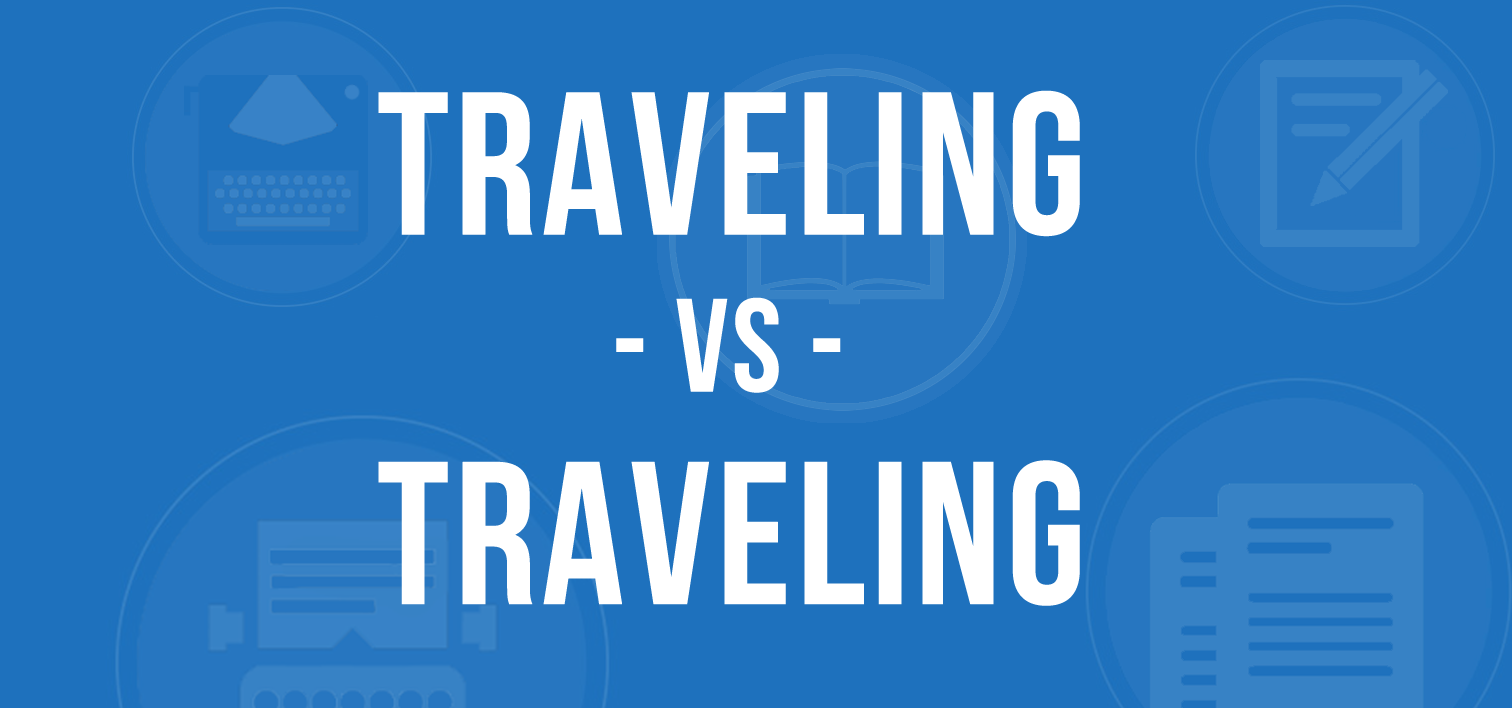
Are you taking a trip anytime soon? If so, where will you be traveling? Or is it travelling? How exactly do you spell this word?
The two words traveling and travelling can cause some confusion for those writers not exactly sure when to use which one. Are they just variations of the same word? Do they have different meanings? Do they function differently in a sentence?
In today’s post, I want to address all of these questions so you will never again wonder or second-guess yourself, “Is it travelling or traveling?”
The Difference Between Travelling and Traveling
Travelling and traveling are both verbs, obviously. To travel is to go from one place to another, as on a trip or journey. For example,

- When the traveling pub is taken off a trailer and put together in a lot near Milwaukee and California avenues, it will boast 400 feet of bar space. – Chicago Sun Times
- They travelled 5,000 miles from Myanmar to place a plaque in Seagrim’s native village of Whissonsett in eastern England. – Washington Post
- Under that analysis, completion of the mobility plan would result in about 35 million miles per day being traveled on L.A. surface streets in 2035. – L.A. Times
You’re probably still thinking, “Okay, I still don’t know how to use these words.”
The difference between traveling vs. travelling isn’t much of a difference at all, really.
In fact, the difference between them is entirely dialectal. There is no demonstrable difference of sense or function, meaning both words can be used interchangeably.

When to Use Travelling
Even though the only thing separating travelling and traveling is a dialectical difference, it is still important to keep your audience in mind when picking which word to use and when.
Travelling (with two Ls) is the preferred spelling in British English and is used much more frequently than is traveling . The graph below shows the use of travelling vs. traveling (as a percentage of all words used) in British English books, journals, and magazines from 1800 to 2008.
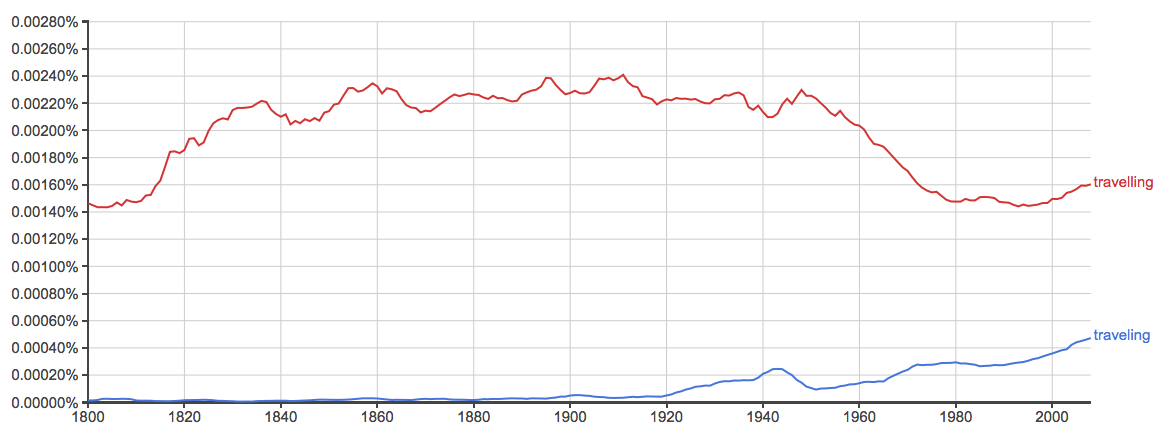
As you can see, travelling (with two Ls) clearly dominates in British English, being used at a rate of about 4:1.
Now, if we look at the same two words over the same time period but limit our search to American print sources, the results completely flip.
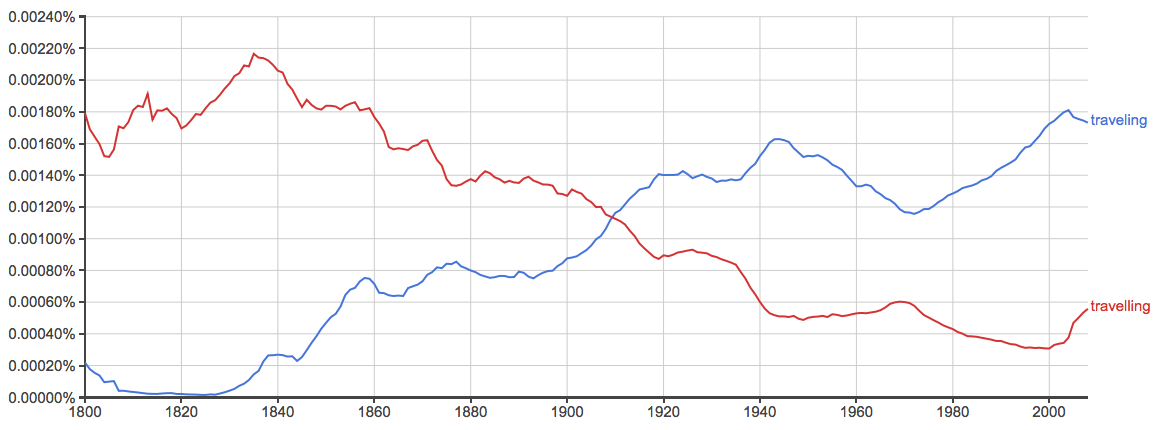
There’s actually a bigger gap between traveling and travelling in American English than there is in British English.
When to Use Traveling
As indicated in the above graph, traveled (with one L) is the preferred spelling in American English.
I’ve discussed the reason for the popularity of many shortened spellings in American English in other posts ( cancelled/canceled comes to mind ), but the basic reason stems back to Noah Webster himself.
He is usually credited with the shortening of many American spellings because in his original 1898 dictionary, he sought to simplify many British spellings he saw as unnecessary. This is where the British-American divide over words like color/colour came from.
Anyway, the point is, if you are writing to an American audience, traveling (with one L) is your best choice.
Remember the Difference – Traveling or Travelling?
One simple way to keep track of these two words is that the shorter spelling is American. If you can keep in mind that, generally speaking, British English favors (favours) the longer spelling of words, you will be able to remember the difference between these words.
It is also worthwhile to note that all of the distinctions in this post apply equally to travelled vs. traveled, traveled vs. travelled, traveller vs. traveler, traveler vs. traveller, etc.
Summary – Traveling vs. Travelling
Is it traveling or travelling? That depends on where you are writing and who is your audience.
- Travelling is the preferred spelling in British English.
- Traveling is the preferred spelling in American English.
Whether you’re talking about travelled or traveled or traveller or traveler, these same preferences still apply.
- Dictionaries home
- American English
- Collocations
- German-English
- Grammar home
- Practical English Usage
- Learn & Practise Grammar (Beta)
- Word Lists home
- My Word Lists
- Recent additions
- Resources home
- Text Checker
Definition of traveller noun from the Oxford Advanced Learner's Dictionary
- She is a frequent traveller to Belgium.
- leisure/business travellers
- These hotels are becoming popular with the discerning traveller.
- I'm not a great traveller. I'm happiest staying at home.
- Independent travellers often steer clear of the most touristy spots.
- Local tribesmen earn their living guiding travellers across the mountains.
- Stations can be dangerous places for the unwary traveller.
- hotels that cater to business travellers
- A friendly welcome awaits the weary traveller.
- Seasoned travellers know which places to avoid.
- The new travel card is very popular with rail travellers.
- Travellers might stop at the village but they rarely stay.
- His travel books have given pleasure to generations of armchair travellers (= people who prefer to read about travelling rather than travel themselves) .
Join our community to access the latest language learning and assessment tips from Oxford University Press!
- New Age travellers
- There was a travellers' site just outside the village.
- There is a programme to ensure access to education for traveller children.
- A representative from the travellers' community met with council leaders yesterday.
Other results
Nearby words.
Definition of 'traveller'

traveller in British English
Traveller in american english, examples of 'traveller' in a sentence traveller, cobuild collocations traveller, trends of traveller.
View usage for: All Years Last 10 years Last 50 years Last 100 years Last 300 years
Browse alphabetically traveller
- traveling saleswoman
- traveling-wave tube
- traveller's cheque
- traveller's joy
- All ENGLISH words that begin with 'T'
Related terms of traveller
- air traveller
- New Traveller
- Irish Traveller
- keen traveller
- View more related words
Wordle Helper

Scrabble Tools
Quick word challenge
Quiz Review
Score: 0 / 5
- Access the entire site, including the Easy Learning Grammar , and our language quizzes.
- Customize your language settings. (Unregistered users can only access the International English interface for some pages.)
- Submit new words and phrases to the dictionary.
- Benefit from an increased character limit in our Translator tool.
- Receive our weekly newsletter with the latest news, exclusive content, and offers.
- Be the first to enjoy new tools and features.
- It is easy and completely free !
- Cambridge Dictionary +Plus
Meaning of traveler in English
Your browser doesn't support HTML5 audio
- daily passenger
- day-tripper
- grief tourist
- super-commuter
traveler | Business English
Examples of traveler, translations of traveler.
Get a quick, free translation!

Word of the Day
compassionate grounds
a reason, especially in law, to allow someone to do something out of sympathy for their suffering

Simply the best! (Ways to describe the best)

Learn more with +Plus
- Recent and Recommended {{#preferredDictionaries}} {{name}} {{/preferredDictionaries}}
- Definitions Clear explanations of natural written and spoken English English Learner’s Dictionary Essential British English Essential American English
- Grammar and thesaurus Usage explanations of natural written and spoken English Grammar Thesaurus
- Pronunciation British and American pronunciations with audio English Pronunciation
- English–Chinese (Simplified) Chinese (Simplified)–English
- English–Chinese (Traditional) Chinese (Traditional)–English
- English–Dutch Dutch–English
- English–French French–English
- English–German German–English
- English–Indonesian Indonesian–English
- English–Italian Italian–English
- English–Japanese Japanese–English
- English–Norwegian Norwegian–English
- English–Polish Polish–English
- English–Portuguese Portuguese–English
- English–Spanish Spanish–English
- English–Swedish Swedish–English
- Dictionary +Plus Word Lists
- English Noun
- Business Noun
- Translations
- All translations
To add traveler to a word list please sign up or log in.
Add traveler to one of your lists below, or create a new one.
{{message}}
Something went wrong.
There was a problem sending your report.

Travelling vs. Traveling: Unraveling the Spelling Mystery
When considering the variance between ‘travelling’ and ‘traveling’, it’s key to recognize that the divergence primarily stems from the variant of English in use. Essentially, this difference is rooted in the linguistic choice between American English and British English. Terms such as ‘travel’, ‘traveled’, ‘traveling’, and similar ones adhere to a straightforward spelling principle that mirrors the English dialect in question. This variation is not about grammatical or semantic distinctions but about the spelling norms of different regions.
The Main Difference between Travelling and Traveling

Travelling vs. Traveling: Key Takeaways
- ‘Travelling’ and ‘traveling’ have the same meaning, differing only in regional spelling conventions.
- American English prefers the spelling with one ‘l’, while British English uses two ‘l’s.
- Awareness of the audience’s form of English can guide the correct usage of these terms.
Travelling vs. Traveling: The Definition
What does travelling mean.
Travelling is the preferred spelling in British English. It refers to the act of moving from one place to another, often for pleasure, business, or other purposes. This variant aligns with other British English spellings that include a double consonant, like ‘cancelled’.
What Does Traveling Mean?
In contrast, Traveling is the standard spelling in American English. The meaning is identical: it denotes the process of journeying from one location to another. American English typically uses a single consonant in such words, hence ‘canceled’ instead of ‘cancelled’.
Travelling vs. Traveling: Usage and Examples
When we discuss the terms “travelling” and “traveling,” we’re really talking about the difference between British and American English spelling. In British English, the word is typically spelled with two ‘l’s— travelling . On the other hand, American English prefers one ‘l,’ thus it’s spelled traveling .
Let’s take a look at some examples to see how each variant is used in a sentence:
- British English: “We have been travelling throughout Europe for a month.”
- American English: “Our favorite pastime is traveling across the United States in our RV.”
Tips to Remember the Difference
When we come across the words “traveling” and “travelling,” it can be a bit puzzling to figure out which one to use. Let’s break down an easy way to remember:
American English primarily uses one ‘l’:
British English favors two ‘l’s:
Travelling vs. Traveling: Examples
Example sentences using travelling.
- We are currently travelling through the Scottish Highlands and encountering breathtaking scenery.
- Our family enjoys travelling ; it’s become an integral part of our lives.
- She will be travelling to several countries as part of her gap year.
- They recommend travelling light to save space for souvenirs and new purchases.
- Due to his job, John is often travelling and has little time to relax at home.
Example Sentences Using Traveling
- We love traveling across the United States in our RV during the summers.
- She is currently traveling on business for a week in New York.
- Our team is traveling to Los Angeles for a conference next month.
- Are you traveling with anyone on your trip to the Grand Canyon?
- His job requires a lot of traveling , mostly to different states for client meetings.
Related Confused Words
Cancelled or Canceled
- Like “travelling,” the British English version doubles the consonant, “cancelled,” while American English uses the singular consonant, “canceled.”
Fulfilling or Fulfilling
- British English doubles the ‘l’, hence “fulfilling,” whereas American English goes with “fulfilling” with one ‘l’.
Labelled or Labeled
- Again, British English doubles the ‘l’ to make “labelled,” while American English prefers “labeled.”
Ageing or Aging
- In British English, it remains “ageing,” with the ‘e’ intact, while American English drops the ‘e’, turning it to “aging.”
Jewellery or Jewelry
- A slightly different change occurs here. “Jewellery” is the British form, with an extra ‘l’ and ‘e’, whereas “jewelry” is the American variant, shorter.
Frequently Asked Questions
Why do some people spell ‘traveling’ with one ‘l’ and others with two?
The spelling difference is primarily due to regional variations. In American English, ‘traveling’ is spelled with one ‘l’, while in British English, it is spelled with two ‘ls’ as ‘travelling’.
Is there a difference in meaning between ‘travelling’ and ‘traveling’ or is it just a matter of spelling?
There is no difference in meaning between ‘travelling’ and ‘traveling’. The difference is strictly in spelling, with ‘traveling’ preferred in American English and ‘travelling’ in British English.
Can you give examples of when to use ‘travelling’ or ‘traveling’ in a sentence?
Certainly! In American English, you would write, “She loves traveling across the country.” In British English, it would be, “She loves travelling across the country.”
How do the British and American English spelling conventions differ for the word ‘travel’?
In addition to ‘traveling/travelling’, British English often doubles the ‘l’ in the words ‘traveled/travelled’ and ‘traveler/traveller’. American English typically uses the single ‘l’ version in these words.
What is the correct pronunciation of ‘travelling/traveling’, and does it differ by region?
The pronunciation of ‘travelling’ and ‘traveling’ is the same in both British and American English. Regional accents and dialects may cause slight variations in pronunciation, but the standard is consistent.
How can I remember whether to use ‘travelling’ or ‘traveling’ when writing an essay or formal document?
A helpful tip is to associate the single ‘l’ in ‘traveling’ with the United States, which also has one ‘l’. For British English, remember the double ‘ll’ in ‘travelling’ as commonly seen in other British spellings.
- Traveled vs. Travelled
- Learnt vs. Learned
- Latest Posts
- Skillset or Skill Set: Clarifying the Difference - March 9, 2024
- Vender or Vendor: What Is the Difference? - February 5, 2024
- Take Effect vs. Take Affect: Unraveling the Confusion - February 3, 2024
Traveling or Travelling – Which Is Correct?
Marcus Froland
March 28, 2024
Ever found yourself pausing mid-sentence, pen hovering over the page or fingers stalled on the keyboard, wondering if it’s “traveling” or “travelling”? You’re not alone. This common conundrum trips up many of us, sowing seeds of doubt every time we try to jot down our adventures or share tales of our journeys. It’s a tiny difference, just one letter, but it holds the power to make us second-guess ourselves.
The truth is, both spellings are correct — but there’s a catch. The choice between them isn’t as arbitrary as it might seem; it hinges on something you might not have considered. And no, we’re not going to spill the beans just yet. By the end of this article, you’ll not only know which spelling to use when but also understand why it matters more than you might think.
When it comes to writing the word for moving from one place to another, both “traveling” and “travelling” are correct. The difference lies in where you are or who your audience is. In the United States , people prefer to use one ‘l’, making it “traveling”. However, in countries like the United Kingdom, Canada, and Australia , adding an extra ‘l’ is the norm, so it’s “travelling”. This variation is because of different spelling rules in American and British English. So, next time you write about your adventures, remember to consider who will be reading it. If your readers are mainly from the U.S., go with “traveling”. If they’re from other English-speaking parts of the world, “travelling” might be more appropriate.
The American and British Spelling Dilemma
The unique paths of language development and educational standards in the United States and the United Kingdom contribute to the spelling variations witnessed in American vs. British English . One such example is the difference in spelling of the word “traveling” in American English and “travelling” in British English. While these discrepancies might appear minor, they play a significant role in the localization of written content and reflect the cultural influences in each variant of the English language.
At the heart of the American and British spelling dilemma is the influence of Noah Webster, an American lexicographer, grammarian, and language reformer who advocated for a simplified spelling system that distinguishes American English from British English. His efforts resulted in several modifications, including changes to the way “traveling/travelling” and related words are spelled.
Let’s take a closer look at the spelling differences between American and British English:
These spelling variations can be attributed to the language discrepancies , which impact not only the spelling of individual words but also the English spelling rules that govern written communication in both American and British English.
“As an American, I may spell the word ‘traveling’ with a single ‘l,’ but my friends from the United Kingdom insist on using the double ‘l’ spelling of ‘travelling.’ It’s fascinating to see the impact of cultural and historical factors on our language usage.”
To understand and appreciate the diverse nature of the English language and its spelling conventions , it’s essential to explore the factors that contributed to the divergence between American and British English. By familiarizing yourself with these variations, you can better cater your written content to different audiences and ensure the appropriate use of language.
Understanding the Spelling Discrepancy: A Historical Perspective
The spelling discrepancy between “traveling” and “travelling” has its roots in the English language history and the linguistic evolution that occurred as American and British English took different paths. Noah Webster, a renowned American lexicographer, greatly influenced the development of American English spelling conventions with his advocacy for spelling reform.
Some of these reforms included reducing double consonants to a single consonant in certain words, such as changing “travelling” to “traveling,” in an effort to simplify and differentiate American English from its British counterpart. This linguistic change had a lasting impact on the spelling of numerous words in American English, including “traveler” instead of “traveller” and “canceled” instead of “cancelled.”
“Language is the expression of ideas, and if the people of one country cannot preserve an identity of ideas, they cannot retain an identity of language.”
Noah Webster
In addition to simplifying spellings, Webster sought to create a distinct American linguistic identity that would set it apart from British English. His dictionary, An American Dictionary of the English Language , was published in 1828 and became a standard reference for American English.
- Historical Influences : American and British English evolved differently due to geopolitical factors, such as political separation and cultural influences.
- Spelling Reforms : Noah Webster sought to differentiate and simplify American English spellings, including changing double consonants to a single consonant, e.g., “travelling” to “traveling.”
- Webster’s Dictionaries : Webster’s dictionary publications helped spread his spelling ideologies, playing a crucial role in shaping American English spelling conventions .
By understanding the historical underpinnings and the reasons behind spelling discrepancies like “traveling” versus “travelling,” writers can make informed decisions on which spelling to use based on their audience and the regional linguistic preferences. The legacy of Noah Webster’s influence on American English continues to thrive, as seen in the American English spelling conventions employed today.
The Grammar Behind “Traveling” and “Travelling”
Understanding the difference between American and British English spelling conventions when it comes to multisyllabic words like “traveling” and “travelling” is essential for writers across the globe. In this section, we will dive into the grammar rules that determine final consonant doubling , stress pattern rules , and suffix addition rules in both American and British English.
When to Double the Final Consonant in American English
In American English, the general rule for doubling the final consonant when adding a suffix depends on whether the ending syllable is stressed or not. If the final syllable of a word is stressed and it ends in a vowel followed by a consonant, the consonant is usually doubled. However, since the stress in “travel” is on the first syllable, the ‘l’ is not doubled when adding a suffix. This results in the American English spelling “traveling.”
The Rule of Thumb for Multisyllabic Words
In both American and British English, the stress pattern of a multisyllabic word can determine the spelling when suffixes are added. For words like “travel,” where the stress is on the first syllable, American English does not double the ‘l’, while British English often doubles the ‘l’, resulting in the spelling “travelling”.
In many multisyllabic words , the stressed syllable can determine the final consonant doubling when suffixes are added.
Applying the Correct Suffix in American vs. British English
Whether to apply one ‘l’ or two when adding suffixes to “travel” depends on the variant of English being used. The American English convention follows the rule of non-doubling for non-stressed ending syllables, favoring “traveling” over “travelling,” which is prevalent in British English. This difference in suffix application is an essential aspect of dialect-specific spelling conventions.
By understanding the grammar rules behind final consonant doubling , stress pattern rules , and suffix addition rules , you can ensure that your writing aligns with the correct spelling conventions, whether working with American or British English.
Geographical Spelling Preferences for “Traveling”
The spelling of “traveling” and “travelling” varies considerably based on the geographical region, resulting in regional spelling differences and local language preferences . To put it simply, “traveling” with one ‘l’ is predominantly used in American English, whereas “travelling” with double ‘l’s is generally preferred in the UK, Commonwealth countries, and other parts of the world influenced by British English norms.
It’s crucial to comprehend these geographical linguistic variations in order to communicate effectively and respectfully with diverse audiences. Using the appropriate spelling for each regional audience can help establish a connection with readers and prevent misunderstandings or misconceptions. To give you a clearer understanding, let’s explore the different variations of “traveling” or “travelling” and their respective geographical preferences.
As you can see, the geographical location of your audience plays a key role in determining which spelling variation to use. In the age of globalization, it is up to you to be mindful of these regional spelling preferences and adapt your writing accordingly to create a clear, consistent, and engaging message for your readers.
Becoming aware of regional spelling differences , local language preferences , and geographical linguistic variations is essential for effective communication and achieving success in the world of writing.
“Traveling” or “Travelling” in Professional Writing
In professional writing, maintaining consistency in language use across different English-speaking countries is crucial. Whether you spell it “traveling” or “travelling” depends on the target audience and their regional language preferences. For example, American English speakers will expect “traveling,” whereas an audience in the UK and other parts of the world influenced by British English will be more accustomed to “travelling.”
Consistency in Language Use Across Different English-Speaking Countries
Maintaining consistency in spelling and grammar is essential in ensuring that your writing is polished and professional. Being aware of international English variations enables you to adapt your writing style to various audiences. To demonstrate the importance of adapting to different language preferences, consider the following table:
As showcased in the table, spelling variations differ across various English-speaking countries. As a writer, it’s crucial to be aware of these differences and tailor your content to suit your audience’s expectations.
Adapting Your Spelling to the Audience
Audience-oriented writing and writing localization are both important factors for success in professional writing. By adapting your spelling and language use to your target audience’s regional preferences, you can better establish credibility and avoid potential confusion. Your readers will appreciate the effort you put forth to ensure your writing is clear and relatable to their own linguistic background.
“The difference between the right word and the almost right word is the difference between lightning and a lightning bug.” – Mark Twain
When submitting work for an international audience, consider the spelling variations and regional language preferences they might have. For instance, a US-based writer submitting work in Australia should opt for “travelling,” aligning with the British English preference, to ensure that the writing resonates well with the local audience.
Staying aware of regional language preferences and maintaining consistency in your writing is essential for successful professional communication. Adapting your spelling to different audiences not only prevents confusion but also demonstrates your attentiveness and dedication to providing tailored content .
Common Usage in Journalism and Literature
In the world of journalism and literature, spelling standards and linguistic preferences play a crucial role in effectively communicating with your target audience. American publications such as The New York Times and Condé Nast Traveler typically use “traveling” with one ‘l’, in line with American English conventions.
On the other hand, British outlets like The Guardian and Bristol Post adhere to British English norms, using “travelling” with two ‘l’s. As a writer, it is essential to be well-versed in these spelling conventions to maintain credibility and fluency in your works. This applies regardless of whether you are writing articles, essays, press releases, or even blog posts.
Understanding the linguistic preferences of your intended audience and tweaking your writing accordingly is not only a sign of cultural awareness but also a mark of professionalism. So, to make a lasting impression and connect with your readers on a deeper level, always pay close attention to the regional spelling differences in words like “traveling” and “travelling” across various media platforms.
Share this:

Subscribe now and transform your language skills with insider tips, tricks, and exclusive content!
You May Also Like:
Everything or Every Thing: What’s the Difference?
Understanding the differences: “rain” vs. “reign” vs. “rein”, jibe vs. jive – what’s the difference, work in progress or work in process – which is correct, diner vs. dinner: what’s the difference, i’m good vs. i’m well vs. i’m fine – difference & meaning revealed (+ examples), two minute english.
English Made Simple: Two-Minute Lessons for Busy Learners
Copyright © 2024 • TwoMinEnglish.com
Travel, Traveled & Travelling – What’s the Difference?
| Candace Osmond
Candace Osmond
Candace Osmond studied Advanced Writing & Editing Essentials at MHC. She’s been an International and USA TODAY Bestselling Author for over a decade. And she’s worked as an Editor for several mid-sized publications. Candace has a keen eye for content editing and a high degree of expertise in Fiction.
Traveling is a pleasant experience. You learn new cultures, meet new people, and taste new food. But is it traveling or travelling ? Is it travelled or traveled ?
Let me tell you that all four spellings are correct. I’ll show you the difference between traveled vs. travelled and traveling vs. travelling in this guide.
Does Travelled Have One or Two Ls?

If you read different writing pieces, you’ll notice that the simple past and participle forms of the verb travel are either traveled or travelled. Both spellings are correct. Therefore, travelled can have one or two Ls.
Traveled, travelled, and traveling come from the el verb travel, which means to go from one place to another. But, as a Canadian who mostly writes for a US audience, I get the confusion.
Traveled vs. Travelled
Now that you know both traveled and travelled are correct, when do you use which?
Traveled is the correct American English spelling. This English variant follows a single L to simplify English words. Other examples of simplified American spellings include humor instead of humour and annex instead of annexe.
Noah Webster of Webster’s Dictionary is a famous person who advocated for traveled instead of travelled . So if you’re American writing for an American audience, let them know you traveled instead of travelled to Europe.
Here are some examples of traveled in a sentence.
- How many miles had they traveled today?
- I traveled to Germany last month.
- The 2022 Rockefeller Center Christmas tree has finally arrived at Rockefeller Plaza in New York City after it was cut down from its home in Queensbury, New York, and traveled 200 miles to the Big Apple. [ Today ]
Travelled is the British English spelling of the word. This English variant with two Ls is the original spelling of the verb. Travelled is also more common worldwide. For instance, Canada uses travelled because it’s one of the British Commonwealth countries.
Here are some examples of travelled in a sentence.
- The famous adventurer travelled around the world.
- He travelled thousands of miles during the presidential campaign.
- Alex Sullivan, an Everton fan who has travelled to Qatar to support England during the World Cup, told talkSPORT that “we were having a good time, enjoying ourselves.” [ Marca ]
Traveling vs. Travelling
The rule for traveling vs. travelling is the same as traveled vs. travelled.
We use traveling as the American English spelling, as the linguist and lexicographer Noah Webster recommended. This significant person preferred shorter versions of words, which many Americans instantly followed.
Here are some examples of traveling in a sentence.
- Rory and I were traveling during her birthday.
- Our traveling expenses were lower than expected.
- While traveling with his wife, Roxana, and his two young sons during the offseason, Ellis concluded that he had soured on many aspects of the NBA grind. [ Washington Post ]
Use travelling as the British, Canadian, and Australian spelling of the present participle form of travel.
Here are some examples of travelling in a sentence.
- I enjoy travelling with my family every summer.
- My travelling companion moved to Oklahoma with her husband.
- As every keen traveller knows, there are a number of checks and research one must undertake before travelling to a new country. [ CN Traveller ]
Travel, Traveled, and Travelling Summary
While travel is a simple and common English word, its derivative forms can be confusing even for the best English writers. But I hope this guide helped you understand the difference between traveled vs. travelled and traveling vs. travelling.
Remember that traveled and traveling with a single L are the American spellings, while travelled and travelling with two Ls are the British and Canadian spellings.
Grammarist is a participant in the Amazon Services LLC Associates Program, an affiliate advertising program designed to provide a means for sites to earn advertising fees by advertising and linking to Amazon.com. When you buy via the links on our site, we may earn an affiliate commission at no cost to you.
2024 © Grammarist, a Found First Marketing company. All rights reserved.
- More from M-W
- To save this word, you'll need to log in. Log In
Definition of traveler
- excursionist
- rubbernecker
- tripper [ chiefly British ]
Examples of traveler in a Sentence
These examples are programmatically compiled from various online sources to illustrate current usage of the word 'traveler.' Any opinions expressed in the examples do not represent those of Merriam-Webster or its editors. Send us feedback about these examples.
Word History
14th century, in the meaning defined at sense 1
Phrases Containing traveler
- commercial traveler
- fellow traveler
- traveler's check
- traveler's diarrhea
Articles Related to traveler

Is it ‘traveling’ or...
Is it ‘traveling’ or ‘travelling’?
A tale of two variants
Dictionary Entries Near traveler
traveler's check
Cite this Entry
“Traveler.” Merriam-Webster.com Dictionary , Merriam-Webster, https://www.merriam-webster.com/dictionary/traveler. Accessed 21 Aug. 2024.
Kids Definition
Kids definition of traveler, more from merriam-webster on traveler.
Nglish: Translation of traveler for Spanish Speakers
Britannica English: Translation of traveler for Arabic Speakers
Subscribe to America's largest dictionary and get thousands more definitions and advanced search—ad free!

Can you solve 4 words at once?
Word of the day.
See Definitions and Examples »
Get Word of the Day daily email!
Popular in Grammar & Usage
Plural and possessive names: a guide, 31 useful rhetorical devices, more commonly misspelled words, absent letters that are heard anyway, how to use accents and diacritical marks, popular in wordplay, 8 words for lesser-known musical instruments, it's a scorcher words for the summer heat, 7 shakespearean insults to make life more interesting, 10 words from taylor swift songs (merriam's version), 9 superb owl words, games & quizzes.


COMMENTS
Traveler and traveller are both English terms. Traveler is predominantly used in 🇺🇸 American (US) English ( en-US) while traveller is predominantly used in 🇬🇧 British English (used in UK/AU/NZ) ( en-GB ). In the United States, there is a preference for " traveler " over "traveller" (87 to 13). In the United Kingdom, there is a 77 to ...
TRAVELLER definition: 1. someone who travels: 2. a gypsy 3. UK spelling of traveler. Learn more.
The spelling of traveler/traveller is a classic exmple of the differences between American English and British English. American English uses one "L" while British English uses two "Ls". It is important to keep in mind that both spellings are correct and widely used in their respective regions. It is essential to be mindful of these ...
Travelers and travellers are both English terms. Travelers is predominantly used in 🇺🇸 American (US) English ( en-US) while travellers is predominantly used in 🇬🇧 British English (used in UK/AU/NZ) ( en-GB ). In the United States, there is a preference for " travelers " over "travellers" (93 to 7). In the United Kingdom, there is a ...
Remember that in American English, we often "travel light," hence fewer letters. The word "travel" has one 'l', and so does "traveler" in American English. "Traveler" is the American English spelling with one 'l', while "traveller" with double 'l' is British English. Think of "traveler" having one 'l' like "one journey."
As mentioned earlier, "traveler" and "traveller" are used interchangeably in many regions of the world. However, there are some regions where one spelling is more commonly used than the other. In American English, "traveler" is the preferred spelling. This is the case in Canada as well. In Australia and New Zealand, "traveller ...
Canada is one of the Commonwealth Countries: more than 50 nations that once were part of the British Empire. Hence, Canada uses the double - L rule, and if you're in Quebec City, the correct spelling is: Travelling. Other Commonwealth Countries that use the "two L" spelling (Travelled, Traveller, and so on) include Australia, South ...
There are 18 meanings listed in OED's entry for the noun traveller, four of which are labelled obsolete. See 'Meaning & use' for definitions, usage, and quotation evidence. traveller has developed meanings and uses in subjects including. mechanics (mid 1700s) arts (mid 1700s) nautical (mid 1700s) Christianity (1820s) spinning (1830s ...
The spelling tends to vary based on whether you're writing UK or US English: In UK English, "travelling" (double "l") is standard. In US English, "traveling" (one "l") is correct. Examples: Travelling and traveling in a sentence. Ava doesn't like travelling/traveling by boat because she gets seasick. If you're travelling ...
traveller (plural travellers) Young travellers at Lusaka Airport (1) One who travels, especially to distant lands. They were faire Ladies, till they fondly ſtriu'd / With th' maides for mayſtery; / Of whom they ouer-comen, were depriu'd / Of their proud beautie, and th'one moyity / Transform'd to fiſh, for their bold ſurquedry ...
That depends on where you are writing and who is your audience. Travelling is the preferred spelling in British English. Traveling is the preferred spelling in American English. Whether you're talking about travelled or traveled or traveller or traveler, these same preferences still apply. Contents [ hide]
Culture Gypsies Gypsies Gypsies are a people found in many countries. The name Gypsy comes from the word ' Egyptian ' because Gypsies were once thought to have come from Egypt.Some people now believe that they originally came from India. In the US Gypsies are called Roma, and in Britain they are known as Romanies or travellers.The name travellers is more often used for Irish travellers, a ...
7 meanings: 1. a person who travels, esp habitually 2. → See travelling salesman 3. a member of the travelling people 4. → See.... Click for more definitions.
TRAVELER definition: 1. US spelling of traveller 2. someone who travels: 3. → traveller. Learn more.
Travelling vs. Traveling: Key Takeaways. 'Travelling' and 'traveling' have the same meaning, differing only in regional spelling conventions. American English prefers the spelling with one 'l', while British English uses two 'l's. Awareness of the audience's form of English can guide the correct usage of these terms.
This linguistic change had a lasting impact on the spelling of numerous words in American English, including "traveler" instead of "traveller" and "canceled" instead of "cancelled." "Language is the expression of ideas, and if the people of one country cannot preserve an identity of ideas, they cannot retain an identity of ...
Travelled is the British English spelling of the word. This English variant with two Ls is the original spelling of the verb. Travelled is also more common worldwide. For instance, Canada uses travelled because it's one of the British Commonwealth countries. Here are some examples of travelled in a sentence.
traveler: [noun] one that travels: such as. one that goes on a trip or journey. traveling salesman.
Revised on August 9, 2024. Travelling and traveling are both correct spellings of the present participle and gerund of the verb "travel," which means "go from one place to another.". The spelling depends on whether you use British English or American English. In British English, "travelling" with a double "l" is the most common.
Travelled vs traveled. "Traveled" and "travelled" mean the same thing and neither is strictly speaking "correct" or "incorrect. The correct American English spelling is "traveled ...